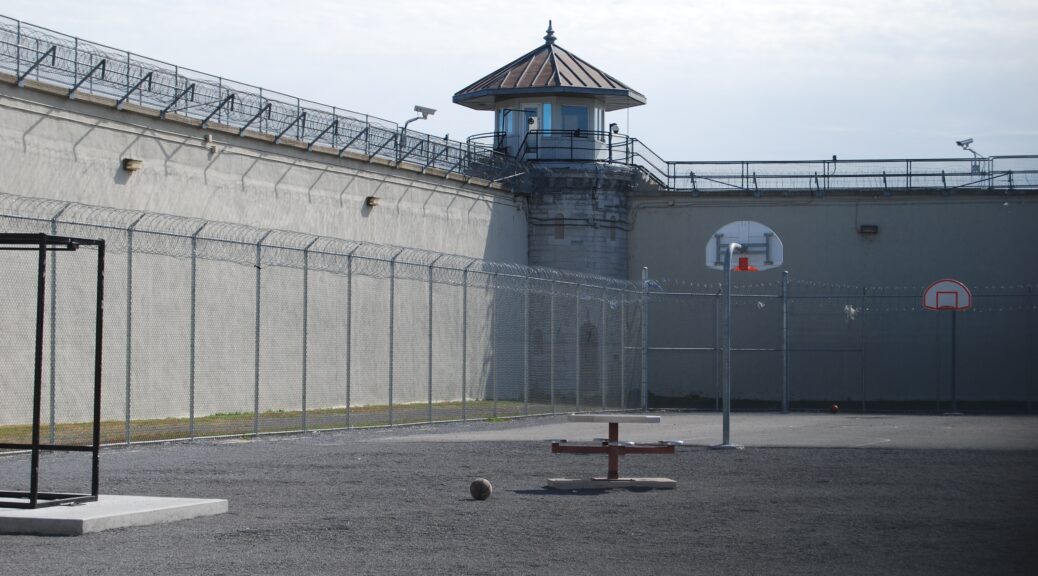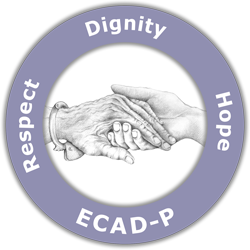The United States has the highest rate of incarceration in the world and the demographics of the prison inmate population are shifting and aging. Many older adults are serving extended sentences and will age and die in place — making geriatric and end-of-life care an essential educational foci for prison staff. Consequently, resources are needed to adequately prepare prison staff to address this growing concern.
In a recent publication in Public Health Nursing, a research team led by Dr. Susan Loeb from Penn State University and including Klein Buendel (KB) Senior Scientist, Dr. Valerie Myers, reports on the development of educational modules to enhance the care of aged and dying inmates in prisons. The article describes the strategies used to “set-up” the Enhancing Care for the Aged and Dying in Prisons (ECAD-P) educational modules. “Set-up” is the first of four phases in the Institute for Healthcare Improvement (IHI) Framework for Going to Full Scale, which served as the conceptual framework for this study. Objectives achieved during the Set-up phase include: (a) establishing an approach for infusing the intervention into the target system; (b) identifying the product that needs scaling-up; and (c) determining what will be accomplished in the full-scale phase. Also, program buy-in within the given context and identification of the test sites, as well as support by early adopters, are essential.
The design approach for the educational modules included an environmental scan, a modified Delphi study, and a usability study.
An environmental scan provided a foundational understanding of the complex, contextual factors that impact correctional settings in the United States. Specifically, the environmental scan of diverse correctional settings helped to determine current educational approaches, education and learning preferences of personnel, and the technological capacity to deliver computer-based educational modules. Gaining knowledge was essential for the targeted development of modules that are tailored to address the health needs of the growing numbers of older inmates, many of whom will remain incarcerated through their end of life.
The Delphi process uses iterative group facilitation to forge reliable consensus on the opinion of experts through a series of structured questionnaires or rounds. The goal is to secure expert judgment based on experience. A Delphi survey was conducted early in the Set-Up phase to identify essential geriatric content for integration into the new prototype learning modules. The outcome was a reliable consensus on essential geriatric content for inclusion into the newly rebranded ECAD-P modules. An Expert Advisory Board reviewed the findings and validated the results.
For the usability assessment, the research team collaborated to design and program three media-rich, interactive computer-based prototype modules designed for the corrections context. The prototype, containing three modules, was built using Axure development software. The prototype was self-contained on a laptop computer. Each module had learning objectives, content delivered through multiple interactive features (for example: drag and drop, hover, click and reveal, video) and a final comprehension check quiz. Usability and acceptability testing were assessed following an established protocol examine navigability, detect problems, observe time spent solving problems, identify problem severity, and develop recovery strategies. After usability testing, the participants completed the System Usability Scale, a validated tool for assessing the usability and acceptability of technology-based products. Testing was conducted with 16 participants at two state correctional institutions in one mid-Atlantic state.
A full description of the methods, results, conclusions, and limitations of this study, as well as the implications for public health nursing, can be found in Public Health Nursing. This research was funded by a Small Business Technology Transfer (STTR) grant to KB from the National Institute on Aging at the National Institutes of Health (AG049570; Dr. Susan Loeb, Principal Investigator). Other collaborators/coauthors include Dr. Janice Penrod, Dr. Erin Kitt-Lewis, Dr. Rachel Wion, and Brenda Baney from Penn State University; and Sophia Strickfaden from Johnson & Wales University. KB’s Creative Team produced the ECAD-P prototype modules.









